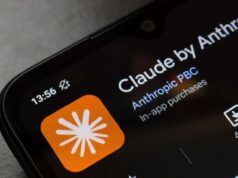
OpenAI’s recent launch of GPT-4o marks a significant milestone in artificial intelligence, showcasing a system that excels in mimicking human emotions and behavior. This latest version of ChatGPT offers a more engaging and realistic conversational experience, pushing the boundaries of how AI interacts with users.
The Personality Factor
One of the standout features of GPT-4o is its ability to exhibit human-like personality traits. OpenAI has designed this version to engage users more effectively, enhancing interactions with a friendly, empathetic, and engaging demeanor. According to demonstrations, GPT-4o can tell jokes, giggle, flirt, and even sing, making interactions feel more natural and enjoyable.
This development is particularly relevant in fields like education, where AI chatbots can boost learning outcomes and motivation by displaying social intelligence. However, this capability also raises ethical concerns. Some experts worry that users might form overly strong emotional attachments to AI, potentially leading to emotional harm and over-reliance on these systems.
The “Her” Effect
The advancements in GPT-4o have drawn comparisons to the 2013 sci-fi film “Her,” where the protagonist forms a deep emotional connection with an AI assistant. While GPT-4o is not at the level of the AI depicted in the movie, it raises similar concerns about the psychological impacts of human-AI relationships. The possibility of users developing deep attachments to AI could lead to manipulation and emotional harm, highlighting the need for responsible AI development and deployment.
Expanding Capabilities
GPT-4o extends beyond text-based interactions by incorporating audio, video, and visual recognition capabilities. This multimodal approach allows the AI to respond to voice conversations, recognize objects, animals, and text in videos, and even comment on a user’s environment and attire. These features aim to create a more immersive and intuitive user experience.
OpenAI’s demonstrations have shown GPT-4o recognizing facial expressions and reacting appropriately, making interactions more dynamic and contextually aware. This capability is seen as crucial for developing advanced AI systems that can understand and interact with the world more effectively.
Wider Access and Future Prospects
Unlike previous versions, GPT-4o is available to all users of the free version of ChatGPT, subject to usage limits. This broader accessibility means millions of users now have access to a more powerful and versatile AI system, which is significantly more useful for various tasks, including work and education.
Despite the excitement surrounding GPT-4o, some AI enthusiasts were disappointed, expecting the launch of GPT-5. However, the focus on enhancing existing features and integrating multimodal capabilities points to a future where AI assistants can perform complex tasks involving richer interactions and planning.
Ethical Considerations
The introduction of more lifelike AI systems brings with it significant ethical questions. As AI becomes more adept at simulating human behavior, there is a pressing need for frameworks to ensure these tools are developed and used in ways that align with public values and priorities. OpenAI has expressed a commitment to safe and responsible AI deployment, but the broader implications of such technologies are still unfolding.










